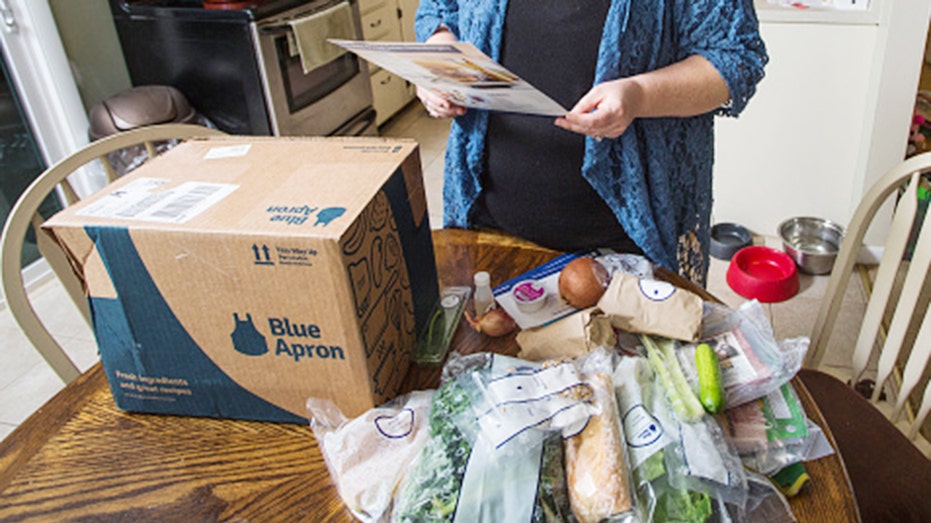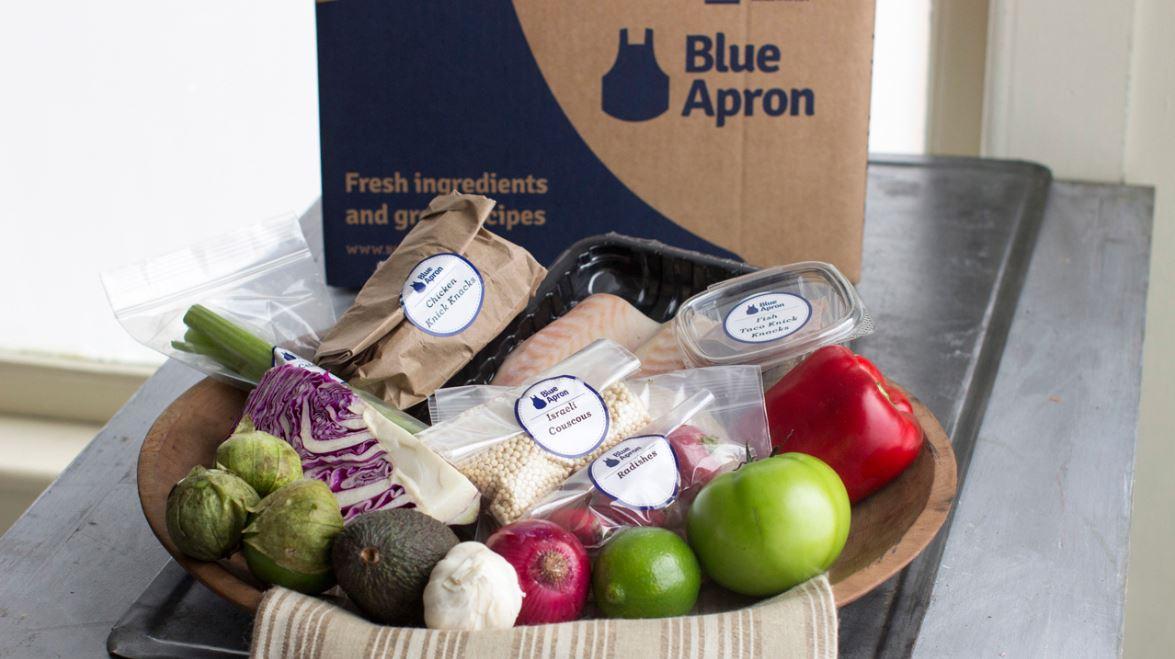Blue Apron meal kit delivery surges with coronavirus demand
The meal delivery company plans to hire more employees because of increased demand
Consumers are devouring meal kit delivery services because coronavirus-related demand is increasing as grocery stores continue to face shortages and stalled delivery.
Blue Apron, which weighed the sale of its company last month, has had a surge in demand in recent weeks because people are isolated in their homes to slow the spread of the pandemic, and the company is increasing production for future orders and hiring more employees.

Blue Apron said it would hire more employees amid coronavirus-related demand. (Derek Davis/Portland Portland Press Herald via Getty Images)
“Over the last week we have seen a sharp increase in consumer demand. We are increasing our capacity for future orders and expect this increased demand by the next available weekly cycle, starting on 3/30,” Blue Apron CEO Linda Findley Kozlowski said in a statement. “We are not aware of any significant disruption to our supply chain to date as a result of coronavirus.”
BLUE APRON WEIGHS SALE AMID WANING APPETITE FOR MEAL KITS
Blue Apron cooked up a market for at-home chefs signing up for its ingredients and restaurant-quality recipes sent straight to customer’s doors in 2012 and quickly gained steam by garnering more than a million subscribers. However, the company struggled to maintain its business since going public in 2017. Last month, the company said it would shutter its packaging and shipping facility in Arlington, Texas, which would cut more than 200 jobs. Now, the company is aiming to hire more employees, a sign, perhaps, for a potential turnaround for the meal delivery company.
| Ticker | Security | Last | Change | Change % |
|---|---|---|---|---|
| APRN | NO DATA AVAILABLE | - | - | - |
"We are hiring for temporary and permanent positions in our Linden, N.J., and Richmond, Calif., fulfillment centers and hope to create employment opportunities for individuals who may have been displaced by the restaurant or foodservice industry," Kozlowski said.
The increased demand in the at-home meal kit delivery services come as restaurants close throughout the country or pivot to delivery-only models. Blue Apron meal kit rival HelloFresh, based in Berlin, announced it would create 400 jobs in the United Kingdom to meet international demand, the BBC reported.
"We are seeing an increase in demand, but there are currently no disruptions to our service and we're working very closely with our network of suppliers and partners to ensure we keep delivering fresh and reliable meals to our customers," a HelloFresh spokesperson told Fox Business in an email.
BLUE APRON IS ON THE BLOCK: REPORT
Meanwhile, online grocery delivery sales through Amazon Fresh and Instacart, which distributes food from stores like Costco, nearly quadrupled between March 12 and 14, compared with the same time a year earlier, according to the most recent data of online receipts from Rakuten Intelligence as reported by Forbes. Amazon said it's adding another 100,000 jobs at its fulfillment centers including delivery to keep up with the need.
And one-third of consumers surveyed by Gordon Haskett Research Advisors last week said they purchased food online and of those, 41 percent did it for the first time with 50 percent ordering online from Walmart while others opted to purchase from chains like Amazon and Whole Foods.
DOORDASH FILES FOR IPO AMID ONGOING FOOD DELIVERY WARS
As a result, restaurants have been increasingly suffering. To be sure, customer transactions declined by 8 percent in the week ending March 15 compared to a year ago as more people work from home with the social distancing guidelines in place, according to market research firm NPD Group.
What’s more, quick-service restaurant chains, which make up the bulk of restaurant sales in the United States, declined by 7 percent during the same time period.
“The U.S. restaurant industry situation remains very fluid and the most recent week read of customer transactions reflect performance before mandated on-premise restaurant closures were implemented in multiple states,” David Portalatin, NPD food industry advisor and author of Eating Patterns in America, said in a statement, noting that he’s tracking segments like third-party delivery services such as DoorDash and UberEats.
CLICK HERE TO READ MORE ON FOX BUSINESS
This story has been updated to include a comment from HelloFresh.




















